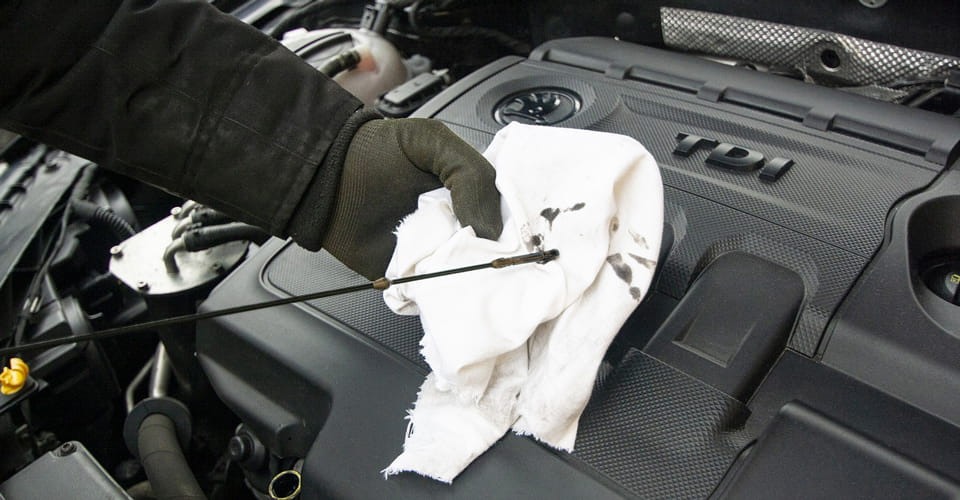
Myth #1: The “W” in 10W-30 stands for “weight.”
The numbers in a multi-grade rating represent the oil’s viscosity, or thickness. The higher the number, the thicker the oil. The best oils are a happy medium; neither thick like sludge nor thin like water.
Because oil viscosity changes with temperature, the multi-grade rating gives you both the hot and cold viscosities. 10W represents the oil’s viscosity rating for winter use, according to a rating system developed by the Society of Auto Engineers. And that’s why the “W” in 10W-30 stands for “winter.” Find the right oil viscosity for your vehicle with the Cenex lubricants recommendation tool.
Myth #2: You should change your oil every 3,000 miles.
Oil chemistry and engine technology have evolved tremendously since the days of the 3,000-mile oil change. The majority of vehicle manufacturers now recommend vehicle owners change their oil every 7,500 to 10,000 miles, based on a normal maintenance schedule. Why the change?
Synthetic oils, such as Maxtron® PCMO, are helping to stretch the time between oil changes. The improved oils provide superior anti-wear protection while maximizing fuel economy.
Also, oil life monitoring systems, which notify the driver when an oil change is needed, are becoming the standard in many new models. Instead of using the standby miles driven method, the technology monitors engine revolutions, operating temperatures and other factors to optimize the change interval selection.
Refer to your owner’s manual for your vehicle manufacturer’s oil change recommendation.
Myth #3: Synthetic engine oils can wear down seals in an engine and cause leaks.
This is an often-cited myth. In fact, if your seals and gaskets are in good condition, synthetic oil will not leak in your engine. Synthetic oil has not been shown to deteriorate engine seals or gaskets. But it might find an existing leak. The smaller molecules of synthetic oil are able to pass through very small cracks and crevices that the larger molecules of petroleum-based oil cannot. Eventually, those small cracks and crevices can lead to bigger problems — with or without synthetic oil.
Myth #4: My engine will benefit if I use supplemental additives.
Adding commercially available additives to your oil is unnecessary, as reputable motor oils will be already formulated with additives to ensure optimal engine performance.
Additional additives may dilute the effectiveness of the oil or even upset the oil chemistry. Refer to your owner’s manual for information about oil additives for your vehicle.
Myth #5: Once you use synthetic oil, you can’t switch back to conventional oil.
Switching between synthetic and conventional oils will not cause any damage to an engine. In fact, synthetic blends are a mixture of synthetic and conventional oil.
Learn more about Cenex engine oils. Find the Cenex oil that’s right for your vehicle with our lubricants recommendation tool.












